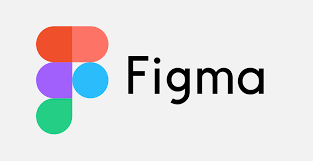Figma, the popular web and app design toolmaker, has temporarily disabled its generative AI feature, “Make Design,” after discovering it consistently mimicked Apple’s Weather app. Andy Allen, founder of NotBoring Software, highlighted the incident after noticing that the AI-generated designs were strikingly similar to Apple’s iconic weather interface.
Speculation arose from Allen’s findings that Figma trained its AI on existing app designs, particularly those from Apple. He noted that the AI seemed heavily influenced by popular apps, prompting concerns about the originality and training data of the generative tool.
Figma’s Response
In response, Figma CEO Dylan Field took to Xitter (formerly known as Twitter) to clarify the situation. Field assured users that Figma did not train the Make Design feature on its content, community files, or third-party app designs. Instead, he explained that the AI utilized off-the-shelf large language models in conjunction with commissioned “design systems.” Field noted that additional quality assurance steps could have avoided the similarity to Apple’s Weather app.
“We have temporarily disabled the Make Design feature until we can ensure it meets our standards,” Field stated. “I hate missing the mark, especially on something I believe is so fundamentally important to the future of design.”
The Broader Transparency Issue
Allen, while understanding of Field’s explanation, emphasized the broader issue of transparency in AI training. “The real issue between GenAI companies and creators is that none of the companies have been open about how these models are trained, with what data, and what rights were secured. It’s like the fast food of creativity, where all the ingredients and processes are hidden away,” he said.
Potential and Challenges of AI in Design
Despite the controversy, Allen remains optimistic about the potential of generative AI in app design. He acknowledged that while current AI-generated designs might need significant modification to avoid legal issues, features like auto-naming layers and localization in Figma are fantastic and show the promise of AI in improving design workflows.
This incident also raises important questions about copyright responsibilities in AI-generated content. Although Figma didn’t directly address legal protections for users, the situation underscores the need for clear guidelines and transparency in AI development and usage.
Figma Future Steps
For now, Figma advises users to carefully review AI-generated designs to avoid potential copyright infringements. As the company works on refining its AI tools, the incident serves as a reminder of the complexities and challenges in integrating AI into creative processes.
See also: HCLTech Collaborates With IBM To Establish Generative AI Center Of Excellence


















